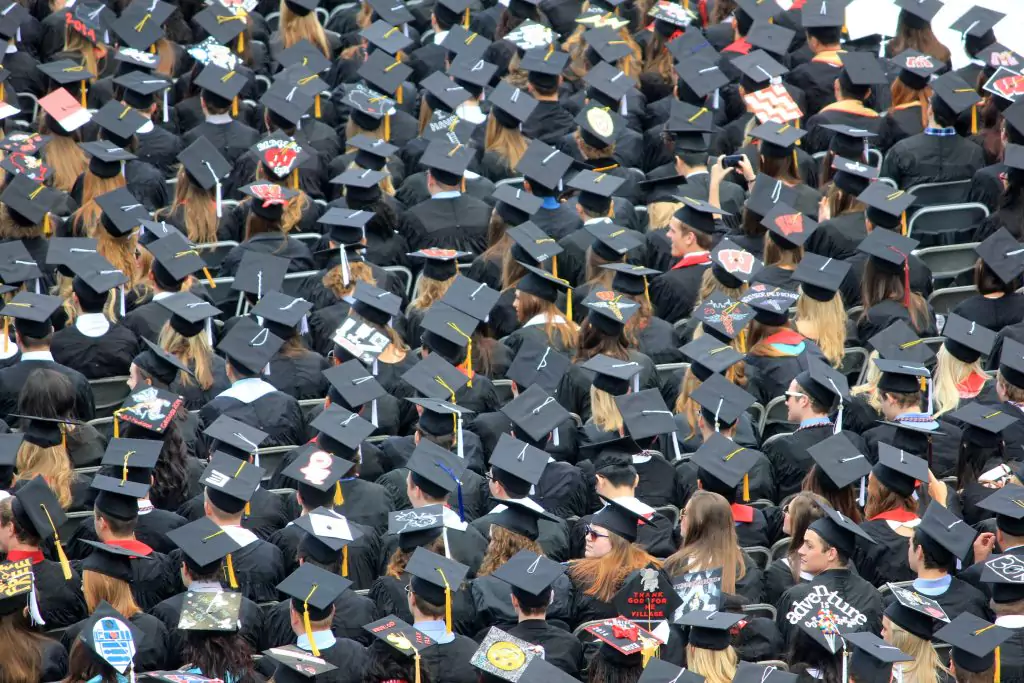
With the Supreme Court poised to rule on affirmative action, it’s clear that we may be nearing a critical turning point, sparking an overdue revision in the U.S. college admissions system. This imminent decision underscores the pressing need for a more equitable system, one that truly captures the country’s diverse talents and range of aptitudes.

✅ AI Essay Writer ✅ AI Detector ✅ Plagchecker ✅ Paraphraser
✅ Summarizer ✅ Citation Generator
Key Points:
- The existing college admissions process disproportionately benefits students from affluent families, thereby maintaining an economic and cultural monopoly among a select group.
- The overemphasis on academic achievement overlooks other valuable life skills such as creativity, resilience, and generosity.
- A shift from race-based affirmative action to a class-based system could potentially rectify these systemic issues.
From Old Elites to New
With the current college admissions process, entry into elite schools requires significant family resources for early education, rather than mere legacy connections. This admission bias strongly favors students from affluent families, creating a new form of privileged elite based on economic power.
A revealing 2017 study led by Raj Chetty indicated a glaring disparity in college admissions. The research pulls no punches – if you’re part of the elite 1% in terms of family earnings, your shot at getting through the Ivy League gates is a staggering 77 times better than someone whose family makes below $30,000 a year. This demonstrates the inherent bias of the current system, which primarily favors those with substantial financial means.
Rethinking ‘Merit’
The prevailing focus on academic excellence as a primary determinant for future success has come under scrutiny. Such a narrow understanding of ‘merit’ overlooks other important qualities, like creativity, resilience, and generosity. Overreliance on academic achievement places extreme pressure on students and can lead to detrimental effects such as stress, depression, and burnout.
As organizational psychologist Adam Grant pointed out in a 2018 Times essay, “academic excellence is not a strong predictor of career excellence.”
“We could have chosen to sort people on the basis of creativity, generosity or resilience… But instead, we created this academic pressure cooker that further disadvantages people from the wrong kind of families and leaves even the straight-A winners stressed, depressed and burned out.”
Adam Grant
A Class-Based Approach
A class-based system, replacing the current race-based affirmative action, is a viable alternative that could alleviate some of these issues. This model, which gives preference to applicants from economically disadvantaged families, addresses the root of societal inequality and has the potential to uplift the poor and middle-class students while simultaneously addressing historical injustices.
Conclusion
As we prepare for a potentially monumental decision by the Supreme Court on affirmative action, it’s time to reflect on these underlying issues and consider a revamp of the college admissions process that would lead to a more equitable future in higher education.
The Role of Socioeconomic Status in College Admissions
Few people would be surprised to learn that wealth plays a major role in college admissions. The National Bureau of Economic Research’s report lays it bare – there’s a direct link between your family’s bank balance and your chances of snagging a seat in a top-tier university. As you comb through the data, the correlation is stark: the plusher the family purse, the brighter the prospects of their child making it into an elite academic institution.
| Family Income Bracket | Probability of Admission to Ivy League (%) |
| Less than $30,000 | 1.0 |
| $30,000 – $60,000 | 2.5 |
| $60,000 – $100,000 | 4.5 |
| $100,000 – $150,000 | 6.8 |
| More than $150,000 | 15.3 |
These numbers, however, don’t merely reflect a correlation between wealth and educational opportunity. They expose an entrenched bias that perpetuates a cycle of privilege. When an admissions process favors wealthier applicants, it inevitably minimizes opportunities for capable students from less affluent backgrounds, widening the wealth gap and undermining the principle of equal opportunity. In the long term, this bias significantly impacts the socioeconomic diversity of our institutions of higher learning and the future workforce.
Related stories:
GRE Trims Standardized Test Duration, Simplifying Business School Admissions
American Colleges Are To Hide Race on Admission Applications
A Student’s Tale OR How To Get Into Your Dream College
Follow us on Reddit for more insights and updates.





Comments (0)
Welcome to A*Help comments!
We’re all about debate and discussion at A*Help.
We value the diverse opinions of users, so you may find points of view that you don’t agree with. And that’s cool. However, there are certain things we’re not OK with: attempts to manipulate our data in any way, for example, or the posting of discriminative, offensive, hateful, or disparaging material.